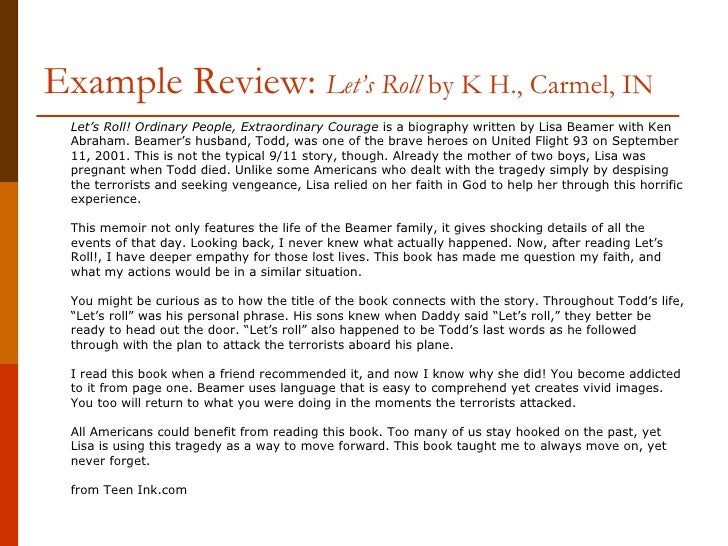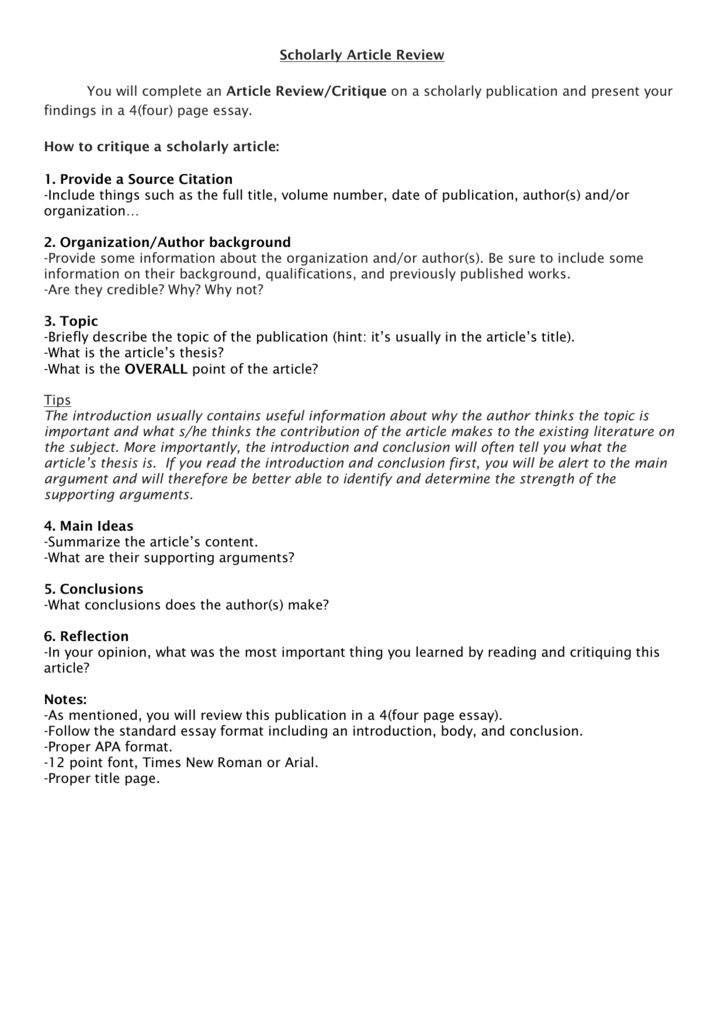
A literature review can be a part of a research paper or scholarly article, usually falling after the introduction and before the research methods sections. In these cases, the lit review just needs to cover scholarship that is important to the issue you are writing about; sometimes it will also cover key sources that informed your research Jul 12, · Begin your review with a citation of the book that includes the author, title, city of publication, publishing house and year of publication. Most citations are MLA format, although you may find it necessary to use some other style. Keep your synopsis of the book's action or Mar 19, · d. a section that discusses the author’s ideas and the book’s thesis within a scholarly perspective. This should be a critical assessment of the book within the larger scholarly discourse; e. if you found errors in the book, point the major ones and explain their blogger.com: Ruth Wallach
How to Write Academic Reviews - Academic Skills - Trent University
The purpose of this guide is to provide you with information on some elements that go into researching and writing arts and humanities papers and theses. Because there is no unified structure to research and methodology in the arts and in the humanities, this guide provides general norms and suggestions, but is not comprehensive.
Help with the Writing Process:. If you need help with the process of writing, such as composition, grammar, or syntax, please consult with the USC Dornsife college Writing Center. The Center offers a variety of assistance to help students at any stage of the writing process. It looks like you're using Internet Explorer 11 or older, how to write a scholarly review.
This website works best with modern browsers such as the latest versions of Chrome, Firefox, Safari, and Edge. If you continue with this browser, you may see unexpected results. USC Libraries Research Guides Organizing Research for Arts and Humanities Papers and Theses General Guide Information Search this Guide Search.
Organizing Research for Arts and Humanities Papers and Theses. General Guide Information Developing a Topic What are Primary and Secondary Sources What are Scholarly and Non-Scholarly Sources Writing an Abstract Writing Academic Book Reviews Writing A Literature Review Using Images and other Media. The Purpose of this guide The purpose how to write a scholarly review this guide is to provide you with information on some elements that go into researching and writing arts and humanities papers and theses, how to write a scholarly review.
Help with the Writing Process: If you need help with the process of writing, such as composition, grammar, or syntax, please consult with the USC Dornsife college Writing Center. Subject Guide. Ruth Wallach. Email Me. Schedule Appointment. Contact: Doheny Memorial Library USC Los Angeles, CA
How to write a review paper? Learn from the Scratch. Know about benefits of a review.
, time: 6:46Writing a Literature Review // Purdue Writing Lab

Jul 12, · Begin your review with a citation of the book that includes the author, title, city of publication, publishing house and year of publication. Most citations are MLA format, although you may find it necessary to use some other style. Keep your synopsis of the book's action or Mar 19, · d. a section that discusses the author’s ideas and the book’s thesis within a scholarly perspective. This should be a critical assessment of the book within the larger scholarly discourse; e. if you found errors in the book, point the major ones and explain their blogger.com: Ruth Wallach A literature review can be a part of a research paper or scholarly article, usually falling after the introduction and before the research methods sections. In these cases, the lit review just needs to cover scholarship that is important to the issue you are writing about; sometimes it will also cover key sources that informed your research
No comments:
Post a Comment